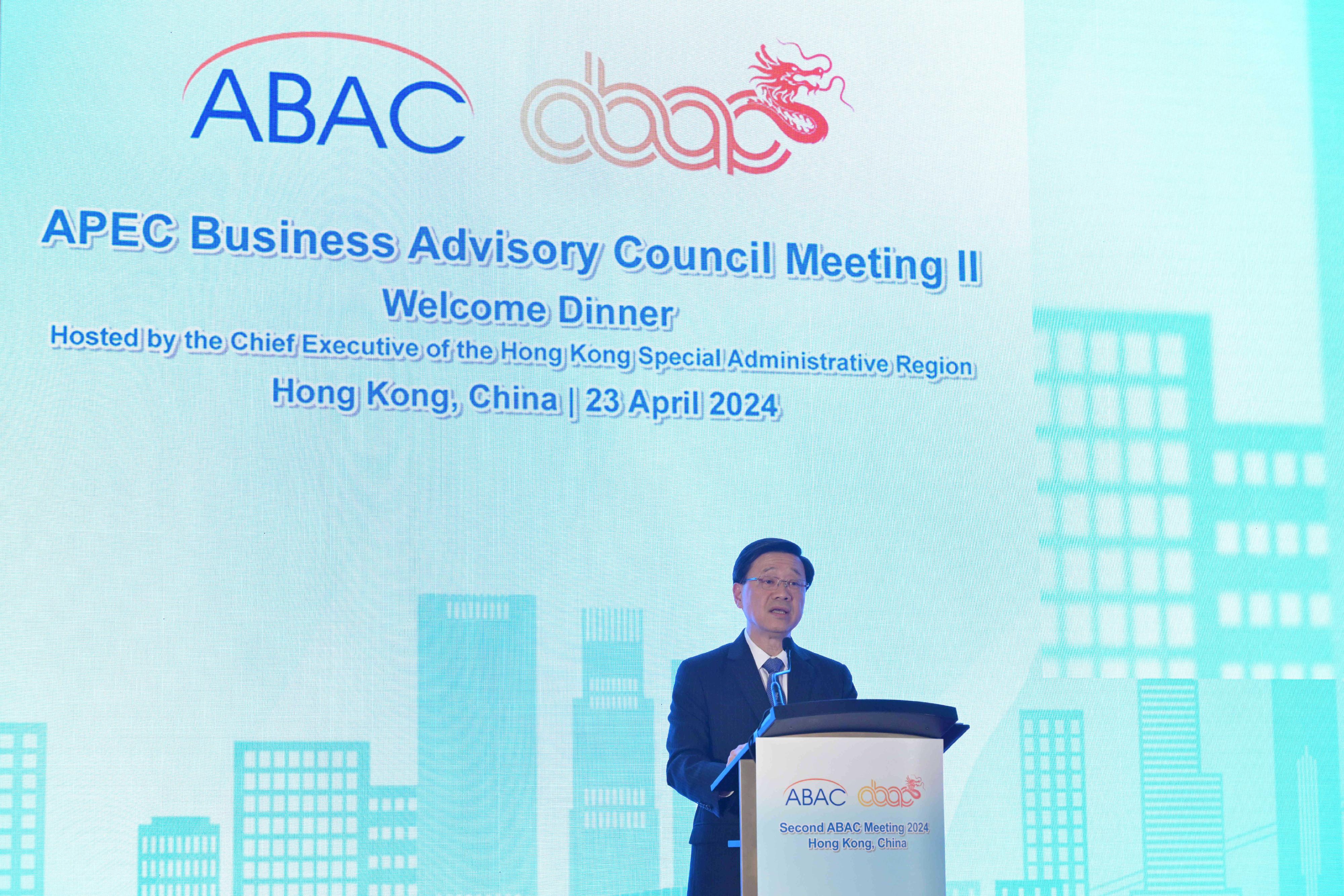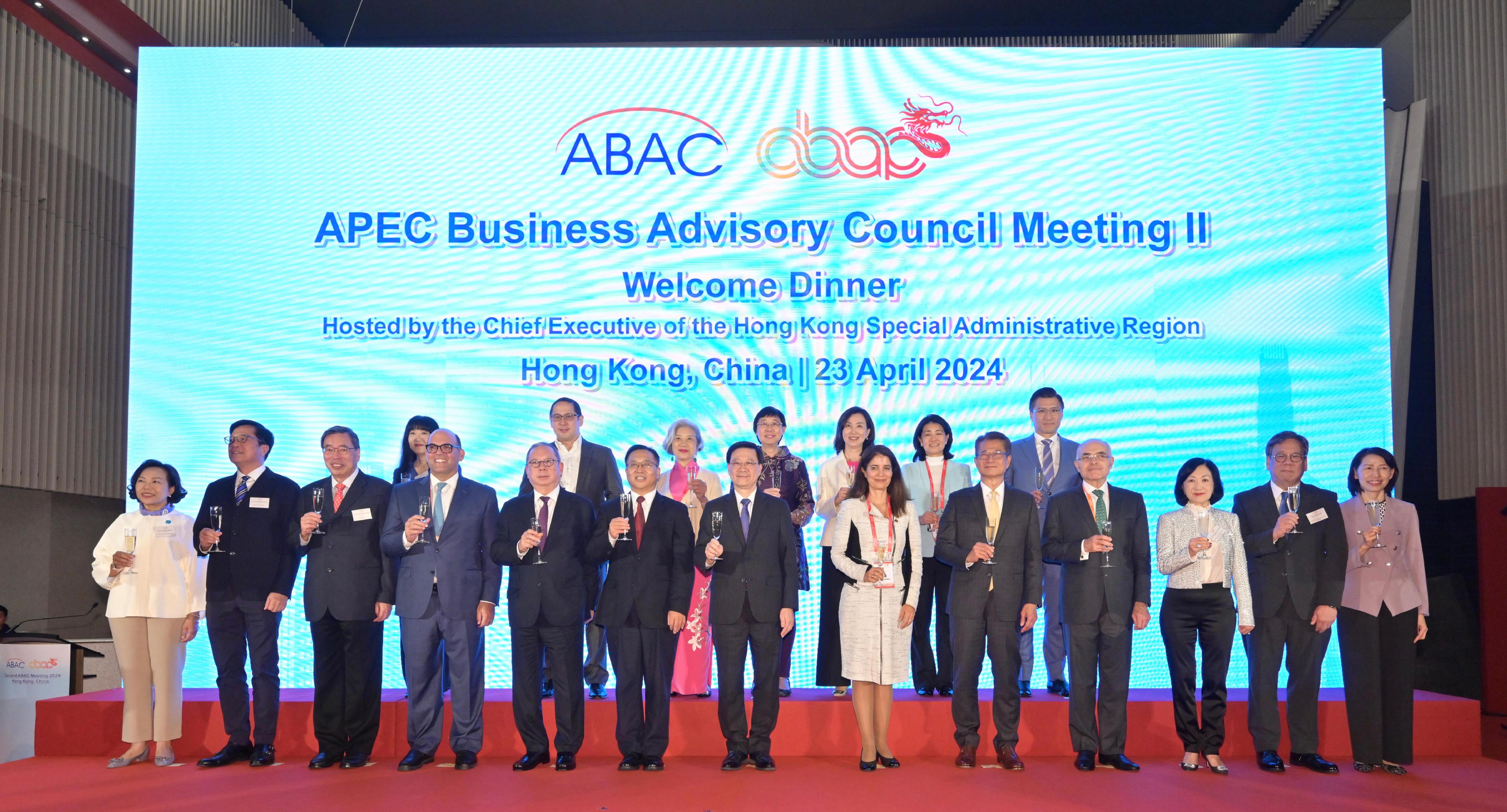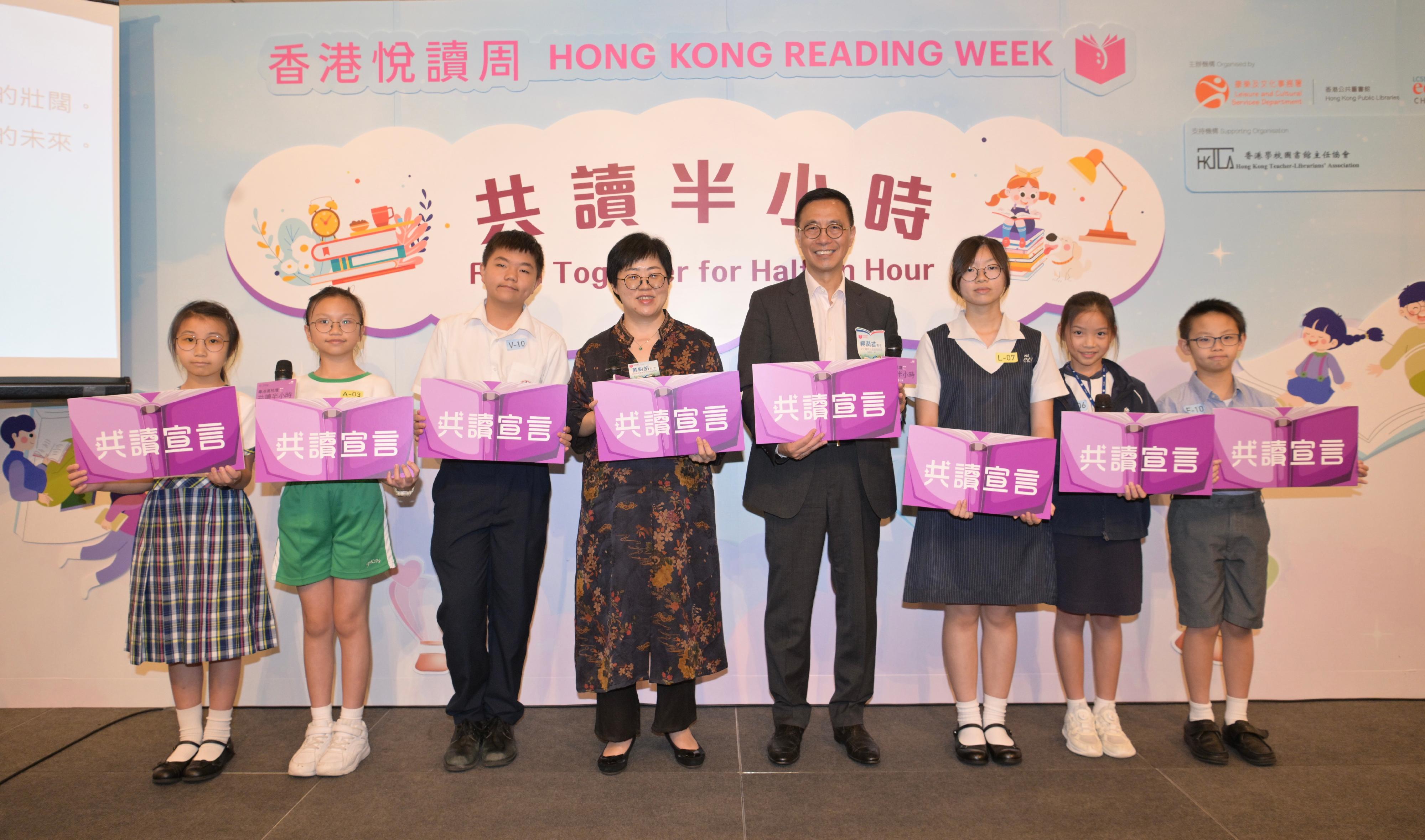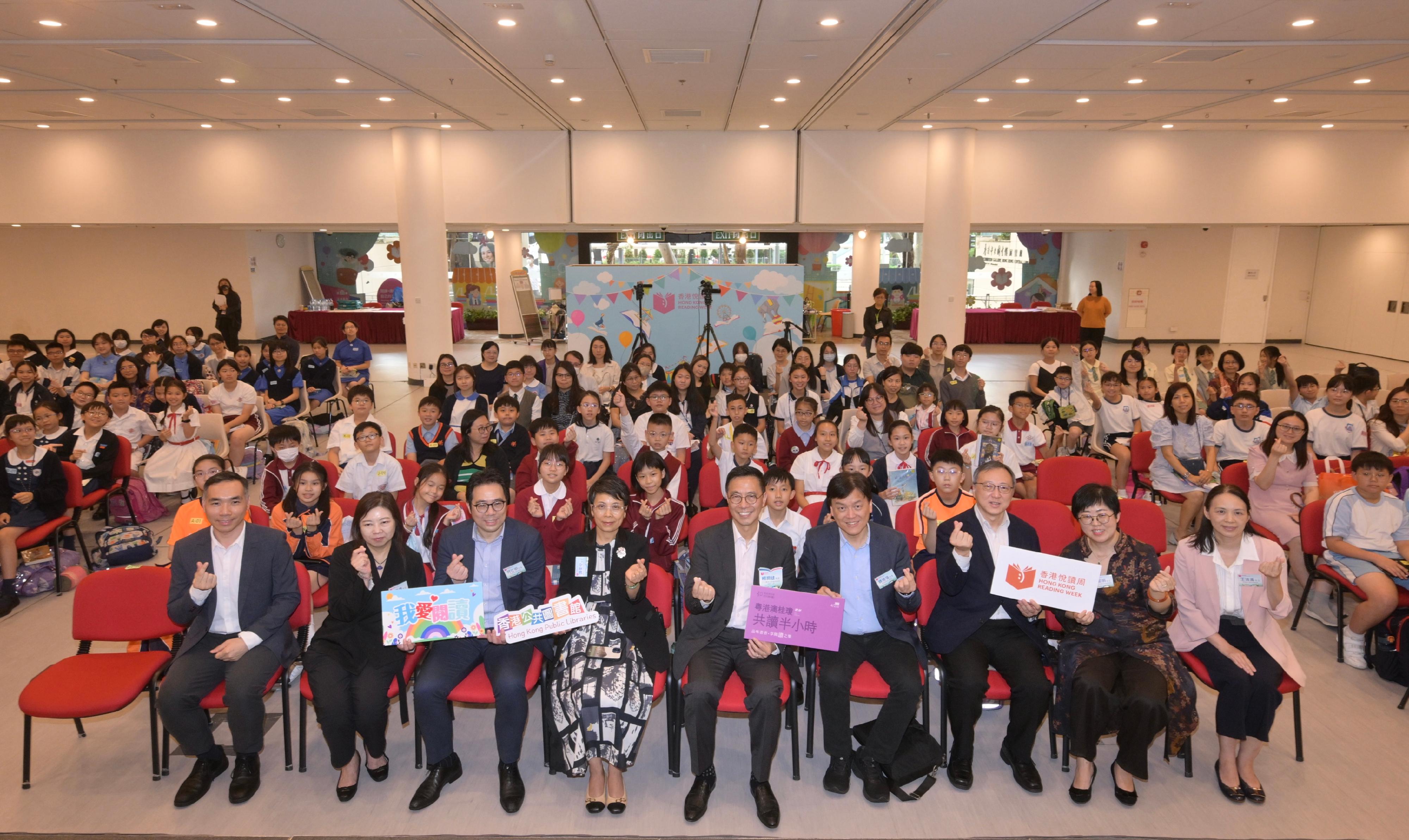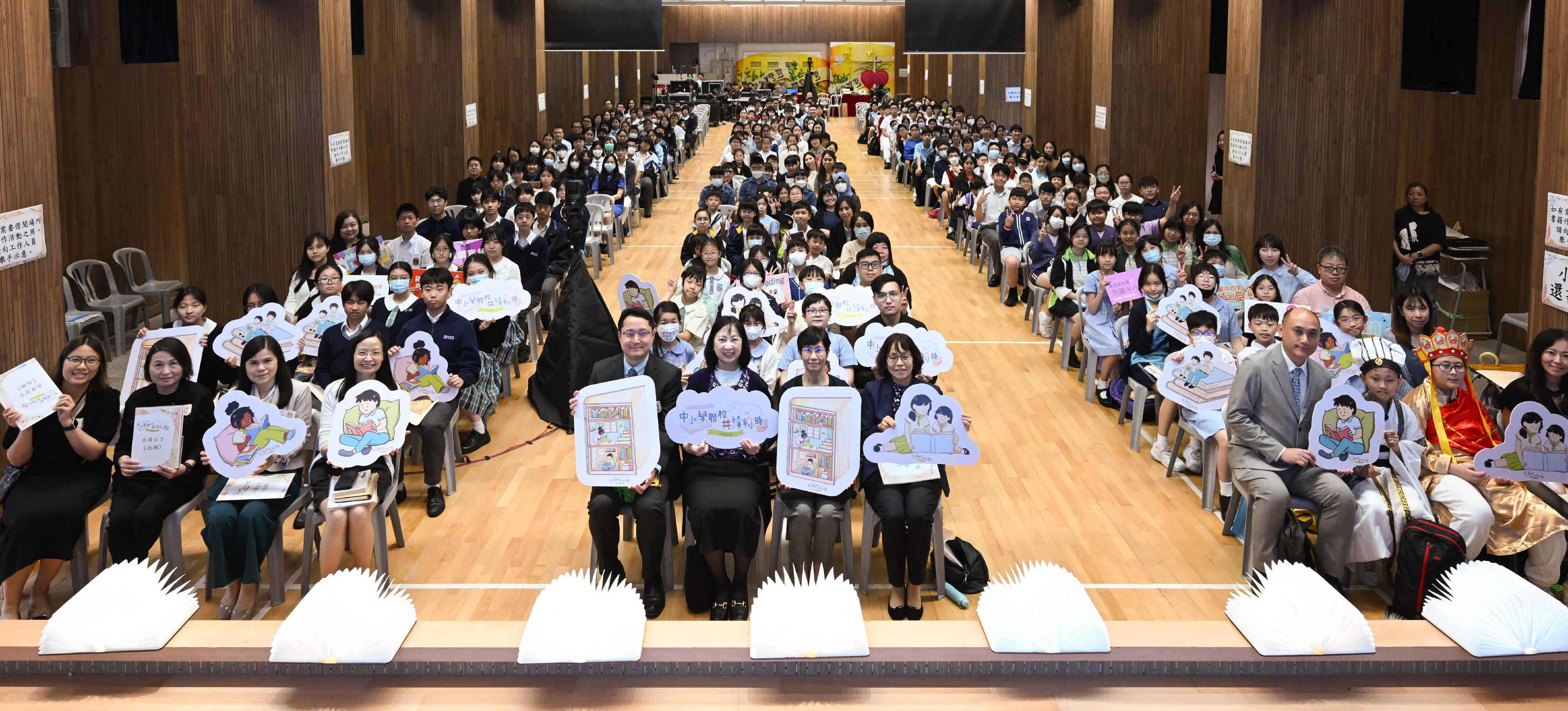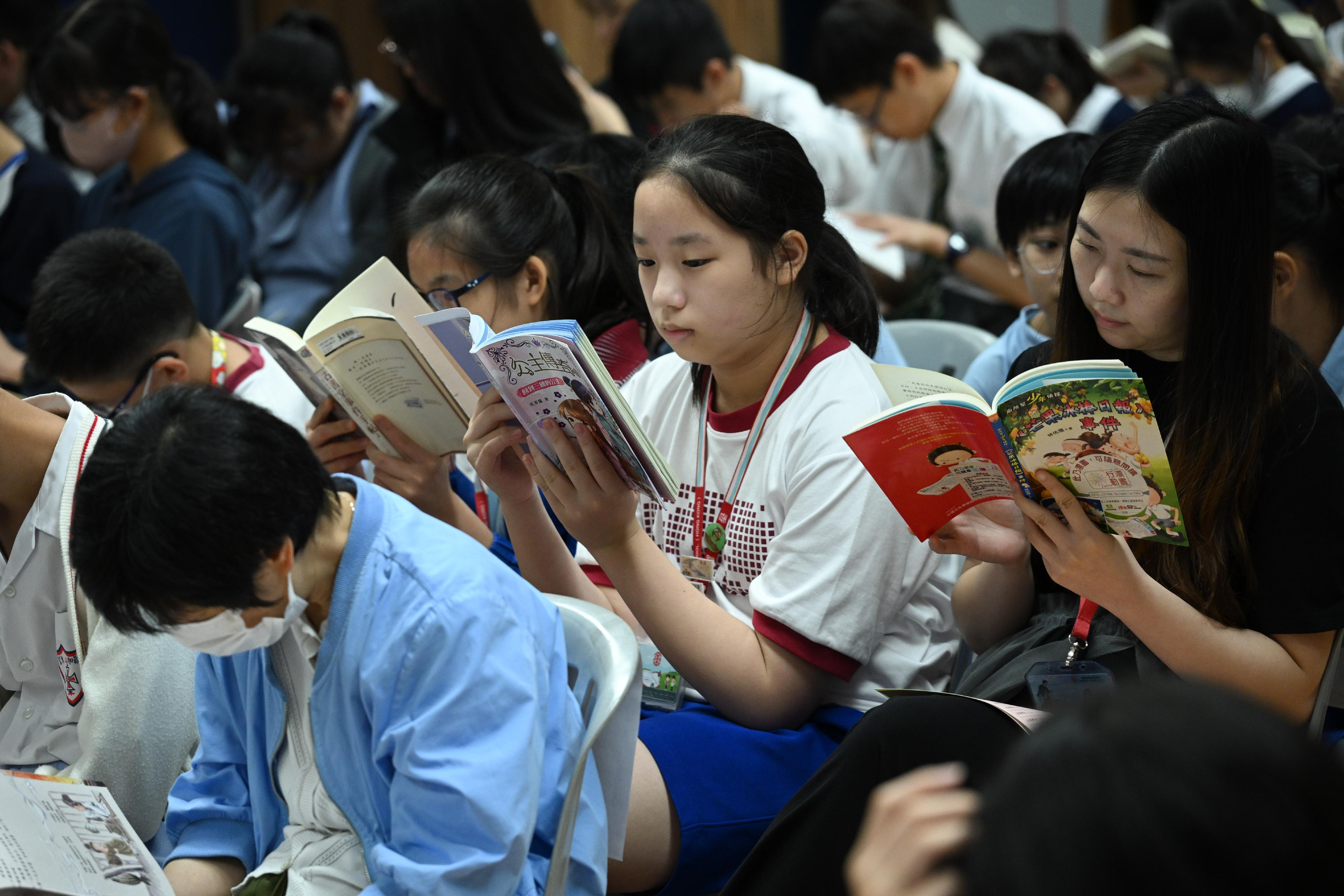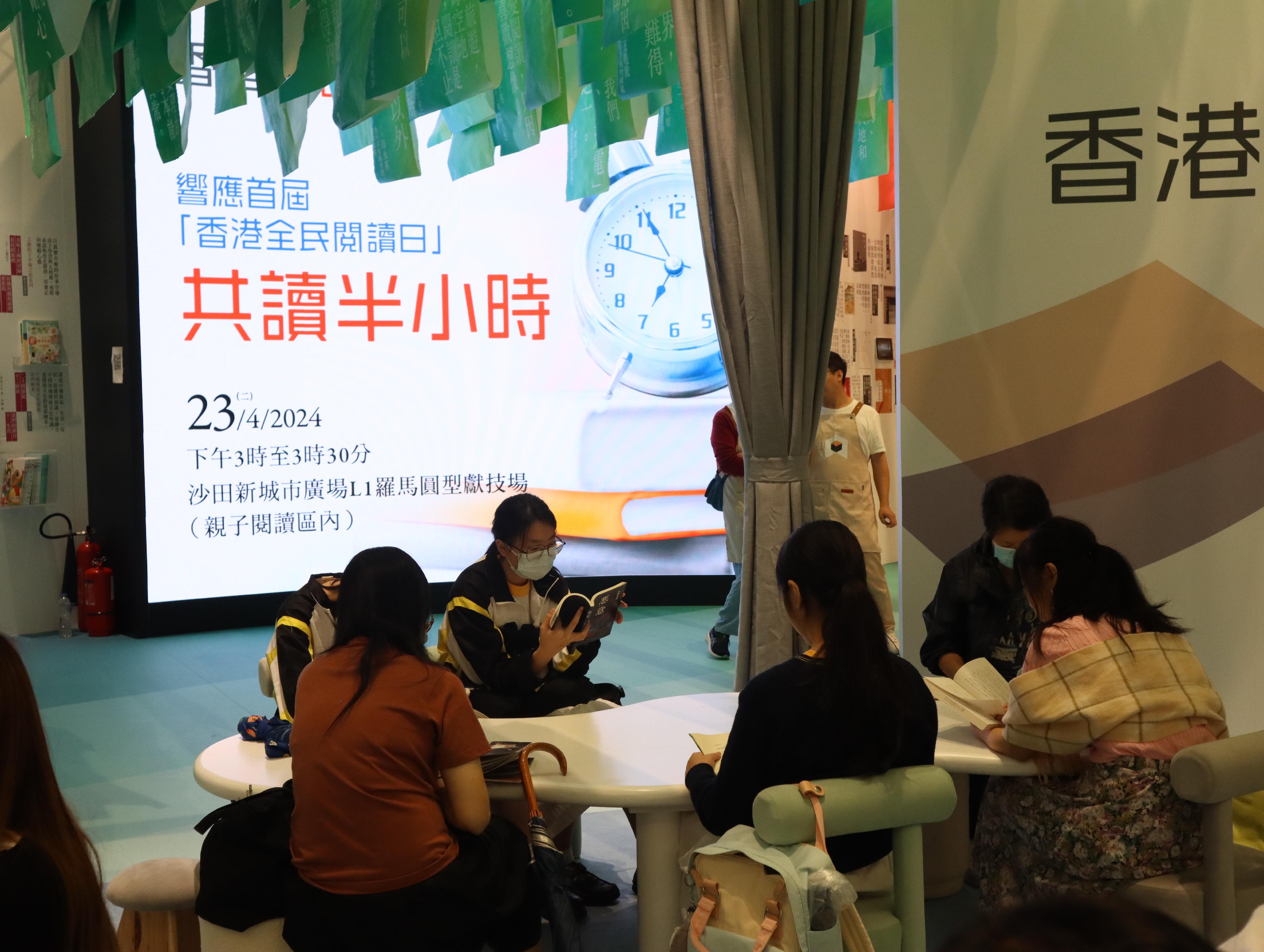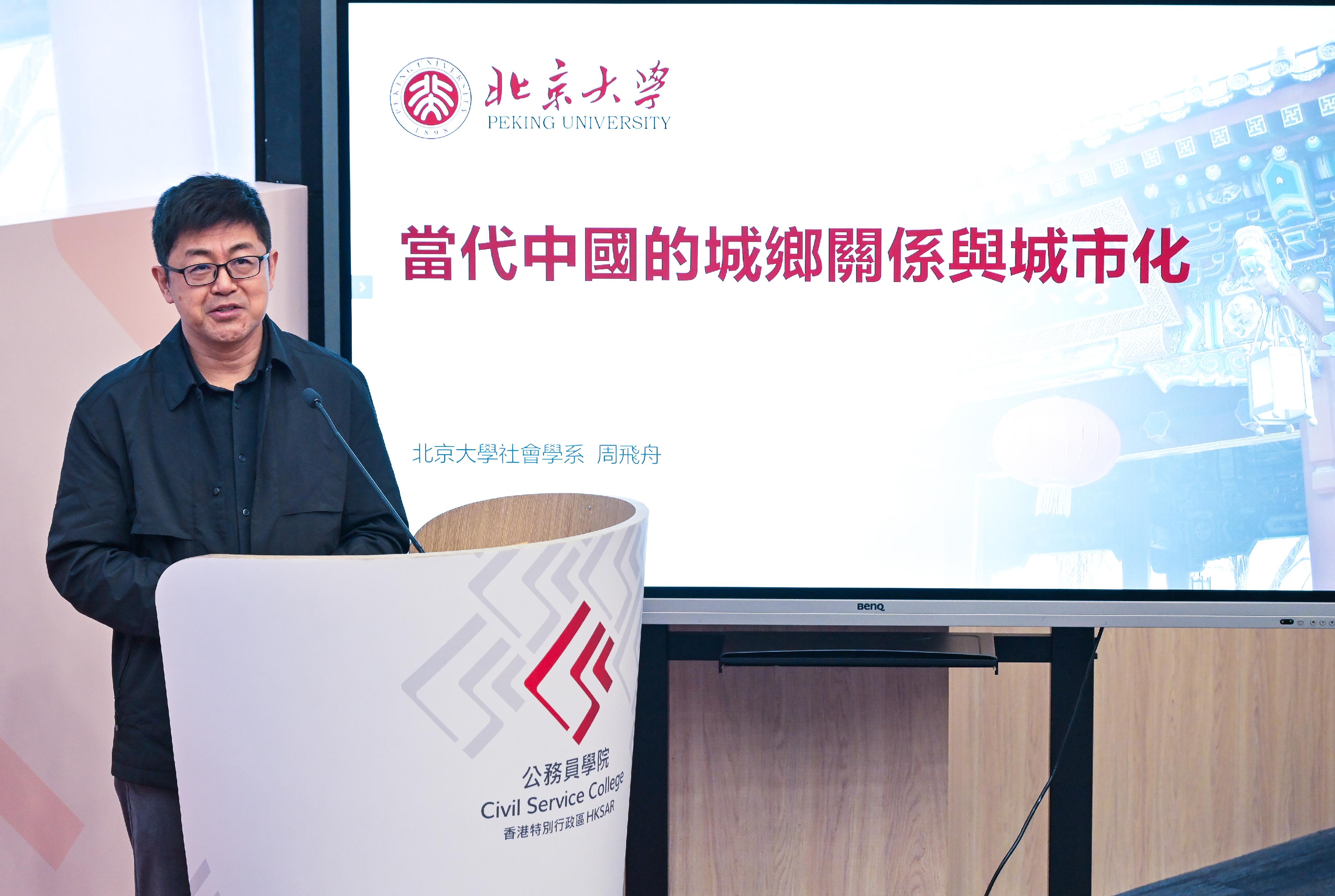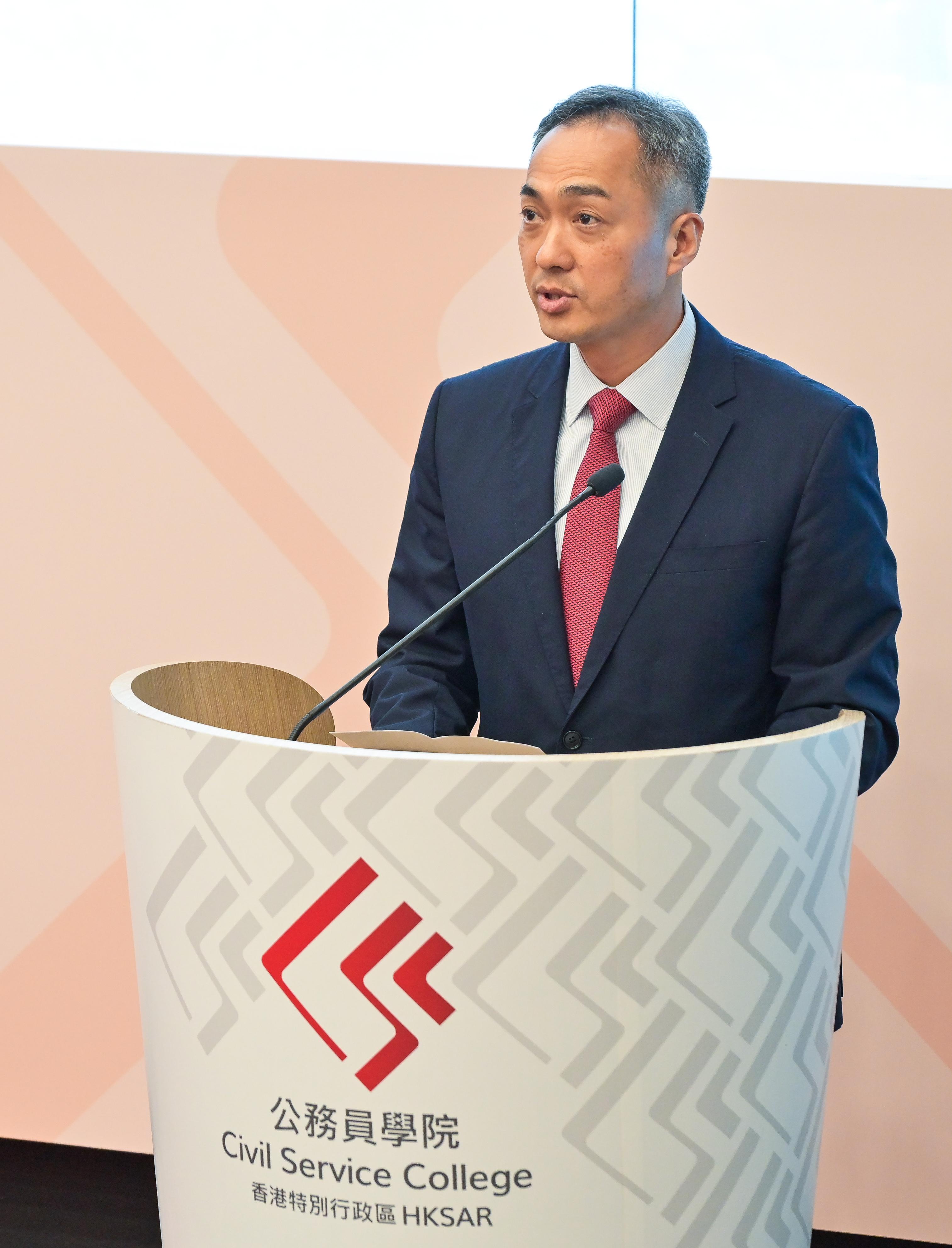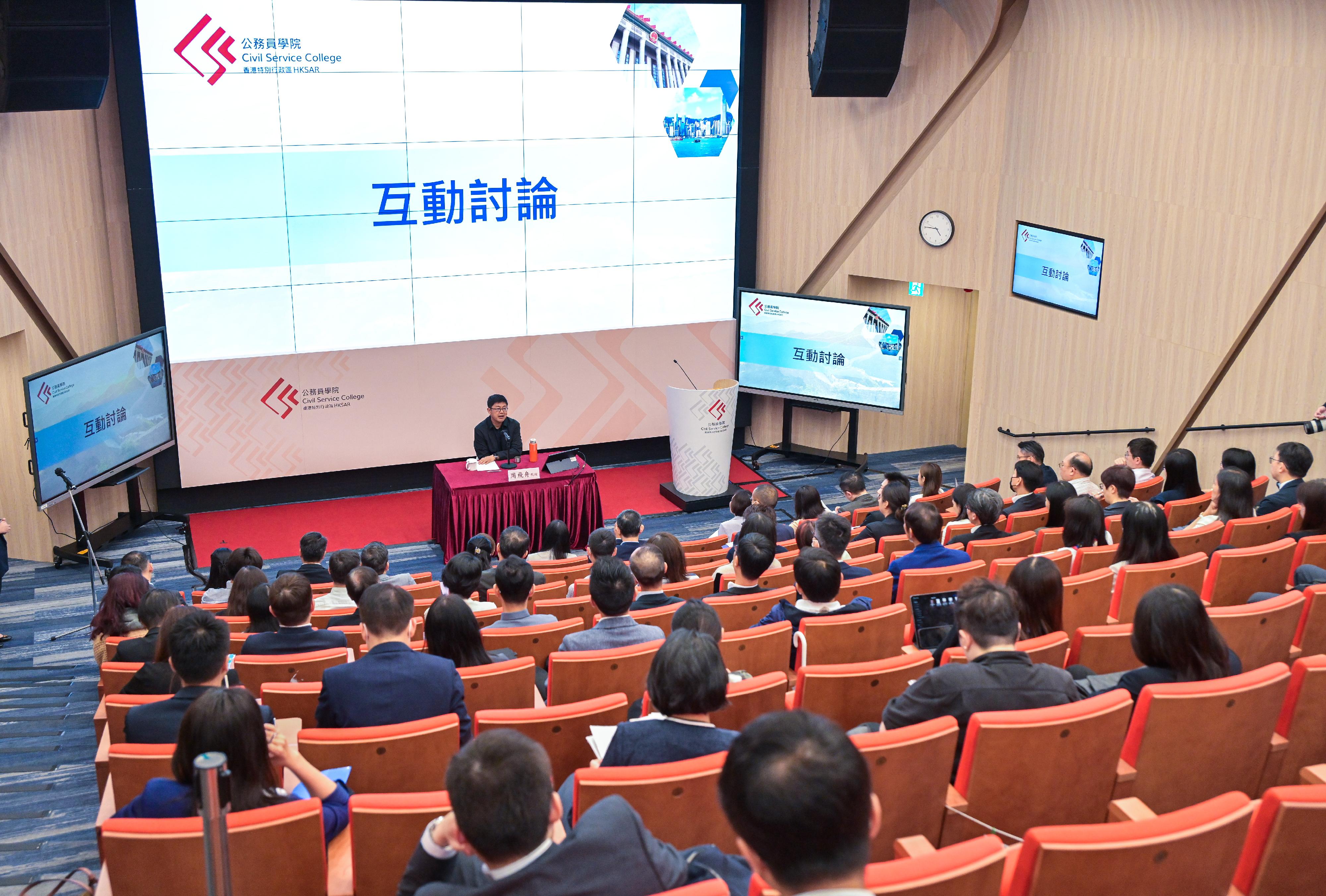Speech by CE at Second 2024 ABAC Meeting welcome dinner (English only) (with photos/video)
Following is the speech by the Chief Executive, Mr John Lee, at the welcome dinner of the Second 2024 Asia-Pacific Economic Cooperation (APEC) Business Advisory Council (ABAC) Meeting today (April 23):
Commissioner Cui Jianchun (Commissioner of the Ministry of Foreign Affairs in the Hong Kong Special Administrative Region (HKSAR)), Mrs Julia Torreblanca (Chair of the ABAC 2024), Ambassador Carlos Vasquez (Chair of the APEC Senior Officials' Meetings 2024), Mr Fernando Zavala (Chair of APEC CEO Summit 2024), my good friend, Ms Marjorie Yang (Hong Kong, China's representative to ABAC), President Andrew Leung (President of the Legislative Council), Mrs Regina Ip (Convenor of the Non-official Members of the Executive Council), ABAC members, distinguished guests, ladies and gentlemen,
First of all, thank you for accepting my invitation to come to the great city of Hong Kong. And of course, I must thank Marjorie, because she has the charisma – so that you accepted the invitation because of what she has said to you. I would like to welcome each one of you to Hong Kong. Welcome to the Hong Kong Palace Museum and tonight's gala dinner. This special occasion marks the second APEC Business Advisory Council Meeting of 2024. Tonight, we celebrate the presence here, in Hong Kong, China, of representatives from all 21 APEC economies. Each and every one of you. Isn't it great?
Since becoming an APEC member in 1991, we have actively contributed to the critical work of APEC. Indeed, this is the fourth ABAC meeting we have hosted since 2002.
We are committed to APEC. We firmly believe in regional economic integration. We believe that co-operation, at every level, is essential if we are to overcome our shared global challenges.
Our trade and investment ties with APEC member economies have always been close. Bilateral goods trade between Hong Kong, China and the other members of APEC exceeded US$940 billion last year. That, ladies and gentlemen, represented nearly 85 per cent of our total trade in goods. Nine of our top 10 trading partners are APEC member economies.
More than good business partners, the economies of APEC are incubators of ideas, promoting inclusive, innovative and sustainable growth for the Asia-Pacific region. We value the input and insights of ABAC and its business leaders in realising these collective goals.
"People. Business. Prosperity" is the theme of this year's ABAC. I fully agree with the thinking behind this visionary theme. After all, people and businesses are instrumental in driving prosperity.
The HKSAR Government has set out priorities that empower our people and businesses to grow and prosper. We do so by creating an enabling environment, and opening up new opportunities.
The "one country, two systems" framework allows for our sound rule of law, the long tradition of our common law system, and a world-renowned judiciary that exercises its judicial power independently, free from any interference.
Our Court of Final Appeal is vested with the power of final adjudication. Currently, nine eminent judges from the United Kingdom and Australia serve as non-permanent judges of the Court of Final Appeal, bringing with them their illustrious judicial experience from other common law jurisdictions.
Many of the world's leading financial centres, APEC economies included, practise the common law. Hong Kong speaks the familiar legal language that gives comforting confidence to a world of investors.
Our robust legal system, together with other long-standing institutional strengths such as the free flow of information, capital, goods and people, a low and simple tax regime, with both Chinese and English as official languages, ensure our strategic role as a "super connector" and "super value-adder" between the Mainland and the rest of the world.
We have long been a steadfast supporter of free and open trade and investment, with the rules-based multilateral trading system of the WTO (World Trade Organization) at its core. We maintain a level playing field for business – local, regional and global.
That's abundantly clear to the 20 economies we've signed eight free trade agreements with to date. And, let me add, we are negotiating an FTA (Free Trade Agreement) with Peru, while seeking accession to the Regional Cooperation Economic Partnership (RCEP), the world's largest free trade pact.
We support Peru's APEC host-year initiative to reignite and refresh the Free Trade Area of the Asia Pacific agenda. We believe it would revitalise APEC's regional economic integration progress.
Hong Kong has all it takes to prosper in economic development with our international counterparts. As the only Asian city with as many as five universities in the world's top 100, we have nurtured a multi-talented workforce that is known for its resilience and dedication. We are, at the same time, opening our doors to global talent and professionals to join us in this new era of opportunities.
Like every economy in APEC, we believe that I&T (innovation and technology) is central to our future. We are focusing on several prime areas: life and health technology, AI and data analytics, fintech, and new energy and materials and advanced manufacturing.
Within the past year or so, some 50 high-powered, high-tech enterprises from around the world have set up or expanded their businesses here in Hong Kong. In turning to Hong Kong for their future, they are bringing to our economy more than US$5 billion in investment, while creating some 13 000 jobs in our city.
At the same time, our start-ups last year passed more than 4 200. That's up 34 per cent from just four years ago.
Alongside our commitment to I&T and economic development, we are mindful to stay inclusive of everybody that calls our city home.
Looking at all of you, I am pleased to note that female is well represented in ABAC membership globally, including this year's ABAC Chair Julia Torreblanca. I am proud, in particular, to add that all three representatives of Hong Kong, China to ABAC are female – Marjorie Yang, Mary Huen and Nisa Leung. That's the highest proportion of female representation among all ABAC members. Aren't we doing well?
Women are prominent not only in our business sector, but also in the HKSAR Government. Quite a number of the leaders in our trade team are ladies. They include Eliza Lee, our Permanent Secretary for Commerce and Economic Development, as well as Maggie Wong, our Director-General of Trade and Industry. More of you know her by her other capacity as Hong Kong, China's Senior Official to APEC.
In fact, one of Hong Kong, China's most experienced officials in shepherding our work in APEC, is here among us tonight. Guess who? Of course, I'm talking about Regina Ip. She was our Director-General of Industry some three decades ago, and was closely involved in our participation in APEC. Regina is now the Convenor of the Non-official Members of my Executive Council, and continues to provide valuable contribution to our work in trade, APEC and many more areas.
Let's have a big round of applause for all the ladies here tonight! Men, we are the minority!
Hong Kong, China is dedicated to social empowerment and promoting parity in the community. We have created a Women Empowerment Fund. Last year, we set aside some US$12 million for the Fund, which will help enable the development of women, while also assisting with child care to meet the needs of working women.
Ageing population is another common phenomenon faced by APEC economies, Hong Kong, China included. Earlier this year, we established an Advisory Panel on Silver Economy. It will tap into the developmental potential of our growing elderly population. More than unleashing the market's outsized business promise, it will seek to enhance the quality of life of the elderly. To help them age healthily and happily.
Ladies and gentlemen, under "one country, two systems", Hong Kong is blessed with long-term, wide-ranging opportunities – in finance, in innovation and technology and in numerous other sectors.
It helps that our Safeguarding National Security Ordinance was legislated and entered into force last month. It means stability, which is essential to business confidence. It enables us to focus on building long-term prosperity for our economy and our community. To focus on bringing vibrancy to our free and enterprising city.
Arts and culture is central to both economy and community growth, let me add. Central, too, to the good life everywhere you look in our city.
And you don't have to look far. This evening's venue, the Hong Kong Palace Museum, features rare treasures from Beijing's Forbidden City. The Museum combines the traditional and the modern, East and West. It is one of many inspiring institutions driving our promising rise as the world's East-meets-West centre for international cultural exchange.
The Palace Museum is part of the West Kowloon Cultural District. One of the world's largest arts and culture developments, it also includes M+ Museum, Asia's first global museum of contemporary visual culture. I know that some of you had the opportunity to visit it before today's Dinner, and for those who have not, I invite you to see it for yourself.
And why not hike into the majestic mountains of our splendid city. They're not hard to find, I can tell you. The country parks and conservation areas here make up some 40 per cent of our total land area. That's very generous.
When you're done getting healthy, exercise your appetite at one of our more than 200 Michelin-recommended restaurants, then hit one of our equally well-acclaimed pubs. Along the way, do remember to loosen your purse strings a bit, in this shoppers' and foodies' paradise.
In short, enjoy yourselves, enjoy your stay, ladies and gentlemen, in Hong Kong. We are honoured to be hosting ABAC's Second Meeting this year. Honoured to be hosting you.
Allow me to thank our distinguished Hong Kong, China representatives and alternate reps to ABAC, both past and current. Many, I know, are with us this good evening.
I am grateful for your commitment and dedicated service on behalf of ABAC, for bringing ABAC back to Hong Kong, China once again.
I'm grateful, too, to the many organisations that have made the hosting of this second ABAC Meeting in Hong Kong, China possible. They include the Hong Kong Trade Development Council, the Hong Kong Tourism Board and the Hong Kong Jockey Club.
For now, I wish you all a brilliant evening, a rewarding ABAC meeting and a memorable and enjoyable stay with us in Hong Kong.
Thank you.
